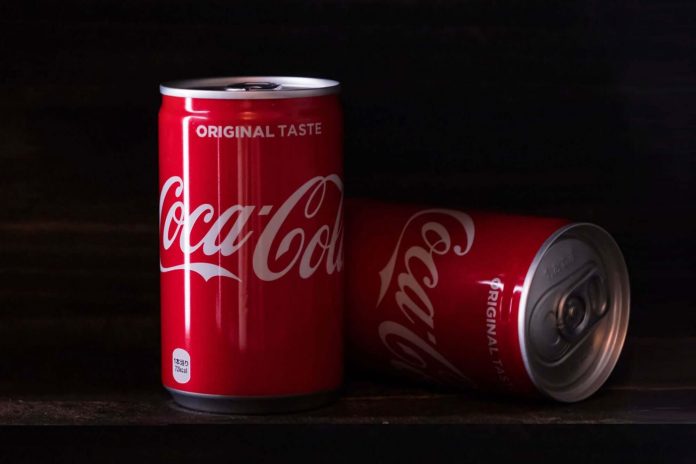This article is written by Muskaan Aggarwal pursuing Diploma in Advanced Contract Drafting, Negotiation, and Dispute Resolution from LawSikho.
Table of Contents
Introduction
The Coca-Cola Company (company) is often known to sign bottling agreements with bottlers or distributors, which helps the company in increasing their reach to the public and hence, having increased sales for their products. Over the years, the company has entered into innumerable such agreements, which has, therefore, resulted in the company acquiring a large share of the beverage market all over the world. However, what is this bottler agreement which has helped the company in having such a great reach and how has the company drafted this agreement? This article shall focus on these questions and provide an insight into the Bottler’s Agreement of the Coca-Cola Company.
What is a Bottler’s Agreement?
A Bottler or a Bottling Agreement can be understood to be a distribution agreement, which allows the authorized bottler under the agreement to produce or distribute the licensed bottled products or such related products of the company that hired such a bottler or distributor. These agreements are limited to a specific territory or region, and hence, multiple such bottler agreements are entered into by companies, to increase their market share by increasing sales in multiple areas through such agreements. As the bottlers or distributors appointed under this agreement belong to that specific territory, it becomes easier for the company to understand the market through such bottlers, and hence, they enter into such agreements.
Moreover, under this agreement, the bottler or distributor purchases the products from the company and then performs an authorised sale of the purchased products. This allows the company to not only have an idea of the number of sales available in the market but also helps the bottler in efficiently conducting the sales, by using the goodwill and reputation earned by the company in other territories.
The Coca Cola Bottler’s Agreement
The Coca-Cola Company, over the years, has entered into multiple such bottler agreements, all over the world. The Government of India contains a template of such Bottler Agreements between the bottler and the company, which provides us with an idea of how such agreements are drafted and executed between the parties. (The template of the agreement can be found here.)
Analysing the Bottler’s Agreement of Coca Cola
The Bottler Agreement, which legally binds the distributor to the company, has some important clauses that help in making the contract clear, accurate, and binding between the parties to the agreement.
The start of the agreement introduces us to the name of the agreement, the parties along with their official addresses, and the execution date of the agreement. The execution date of the agreement is the date from when the agreement shall be binding on the parties. This is followed by providing details of the applicable laws over the agreement, which help in determining the obligations of the parties and how such obligations must not be in contravention to the laws of that specific country.
This is followed by some of the important clauses of the agreement:
-
Recitals clause
The recitals clause always starts with the term ‘WHEREAS’ and provides the background information of the parties to the agreement, along with their intention and motivation behind entering into the present agreement. As this clause includes the reasoning behind agreeing, it is beneficial to provide brief details of the product and jurisdiction/territory in question. These may be expanded upon further in the upcoming clauses but providing a brief line or two about them in the recitals, helps the reader in going forward in the contract with a specific mindset of what the agreement is about and what the parties have obligated upon.
-
Object of the agreement clause
Being the first official clause of the agreement, this clause includes detailed information about the intention of the parties and the scope of their powers under the agreement:
- Details about the authority provided by the company to the bottler, which is to prepare and package the beverages, as approved by the company in writing, and to ensure that the trademarks of the company stay intact during such sale in the specified territory.
- The company is bound to comply with the supply orders, as mentioned by the bottler, but only the quantity that is covered under this agreement. Moreover, the bottler agrees that the ingredients of the beverage shall be purchased only from the company or through an authorized supplier, and by no one else.
- The bottler agrees to undertake the sale of the products, in accordance with the requirements of the company, and the bottler agrees to not sell or resell the manufacturing contents of the beverages to any third party, without the prior permission of the company.
- The company reserves the exclusive right to decide on how the beverages shall be manufactured, and the bottler has no say in this method.
-
Obligations of the bottler relative to marketing, planning and reporting clause
This clause includes the obligations of the bottler, that the bottler or distributor must comply with during the term of the agreement, in relation to marketing, planning, and reporting. Non-compliance with these obligations often results in a breach of the agreement, and the bottler can then be held liable for not performing the requirements of the agreement. These obligations are mutually decided and negotiated between the parties before the agreement is entered into, and therefore, the parties must ensure that they strictly comply with these requirements. Some of the important obligations of the bottler under this clause are:
- Promote and expand the company to the best of its capacity in the territory.
- Satisfy the demands of the people of that territory.
- Search for methods to continue the funding process for that territory and ensure that proper operation and maintenance of facilities is done during the manufacture, delivery, or sale of the products.
- Deliver updated information to the company, in relation to the feedback and demands of the consumers, which helps the company in updating themselves accordingly.
- Inform the company about the presence of any other bottler in the territory. If the company finds that the bottler himself is to blame for such an occurrence, then the bottler could be held liable to provide compensation to the company.
-
Obligations of the bottler relative to the trademarks clause
This clause includes the obligations of the bottler, during the term of the agreement, in relation to trademarks of the company. Some obligations of the bottler under this clause are:
- Ensure that the validity and ownership of the company are maintained throughout the term of this agreement.
- The bottler must not mislead or misrepresent the company in any manner, in relation to their logos, name of the brand, etc.
- If the law requires the bottler to be a registered franchisee, the bottler must do so to continue being in relation with the company.
-
Obligations of the bottler relative to the preparation and packaging of the beverage clause
This clause includes the obligations of the bottler, during the term of the agreement, in relation to the preparation and packaging of the beverage products of the company. Some obligations of the bottler under this clause are:
- Strict adherence to the packaging requirements, according to the company policy and standards.
- Must use identification codes on the packaging.
- Prompt notice to the company, if the bottler finds any problem in the quality of the products.
- Delivery of samples of products, at the expense of the bottler.
- Use of approved packaging only.
- Conducting work in accordance with the laws of the territory and informing the company if there is any contradiction between the company policy and the laws of the territory.
-
Purchase and sale conditions clause
This clause provides details about how the pricing of the products shall be adjudged and what role does the bottler play in such a case. The right to perform any change in the price structures is limited to the company, and the bottler is expected to comply with these structures. Any non-compliance or problem that the bottler faces must be informed to the company, and if the Bottler is unwilling to continue with the agreement with the changed price, the company must be informed 30 days in advance of the same. Within that period, the bottler must ensure that he/she complies with the termination policy of the company and returns every confidential information that the company has given to the bottler.
-
Duration and termination of the agreement clause
This clause deals with the scenarios which are capable of terminating the agreement between the parties. An agreement terminates not just when the term of the agreement expires, but there may be other situations that could result in such termination. These situations include any breach of obligations, illegality, fraud, etc. Therefore, this clause provides information on such scenarios, along with details about how termination shall be conducted in such cases. It becomes important for the parties to comply with the termination laws of that country, to make the process easier.
-
Ownership and control of the bottler clause
This clause highlights the extent to which the bottler is allowed to control and own the products of the company. The bottler is only allowed to manufacture and sell the products, and the same shall be the extent to which the bottler must do his duties. Moreover, this clause, while limiting the actions of the bottler, provides guidelines of situations which the bottler is not allowed to enter into – such as delegation of powers, transfer or assigning responsibilities, providing accurate notification and information to the company, etc.
-
General clause
This clause remains common to both parties and is not limited to the bottler, unlike the previous clauses. This clause includes the force majeure situation, and other general details in relation to the jurisdiction, governing laws, the relationship between the parties to the agreement, etc. This clause helps the parties to limit their liabilities in case anything goes wrong during the term of the agreement, which is not capable of being stopped by either of the parties.
Finally, the agreement ends with the name and signatures of both the parties to the agreement, i.e. Coca-Cola Company, and the bottler.
Conclusion
As noted through the above analysis, a major part of the agreement highlights the obligations of the bottler. This helps us to infer that the company under this agreement is in a higher position than the bottler, and the bottler must comply with the details and information given by the company throughout the term of the agreement. This is mainly because the actions of the bottler affect the reputation of the company directly. Therefore, the company tries to provide more restrictions on the parties, to ensure that there are no problems that the company faces due to the actions of the bottlers.
It can be concluded that such bottling agreements are an effective way to increase the market presence of the company and to help the bottler in increasing their sales by using the company’s name. Therefore, this provides a winning situation for both, given that they comply with the terms of the Bottler’s Agreement.
References
- https://www.sec.gov/Archives/edgar/data/925261/000110465912030541/a12-9860_4ex1d2.htm
- https://www.we-pack.co.uk/advice-centre/guides/what-is-contract-bottling-and-why-should-you-use-a-bottling-service
- https://www.lawinsider.com/dictionary/bottling-agreement
Students of Lawsikho courses regularly produce writing assignments and work on practical exercises as a part of their coursework and develop themselves in real-life practical skills.
LawSikho has created a telegram group for exchanging legal knowledge, referrals, and various opportunities. You can click on this link and join:
 Serato DJ Crack 2025Serato DJ PRO Crack
Serato DJ Crack 2025Serato DJ PRO Crack











 Allow notifications
Allow notifications


